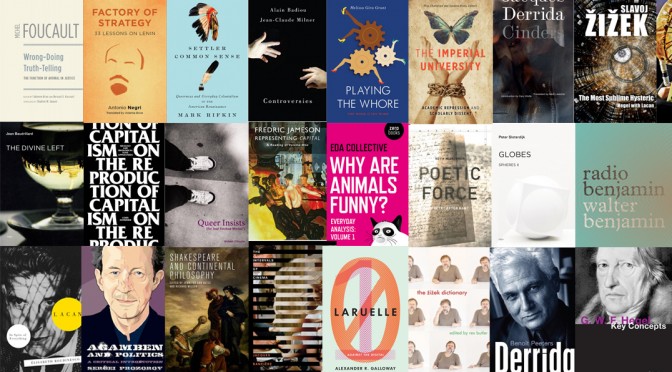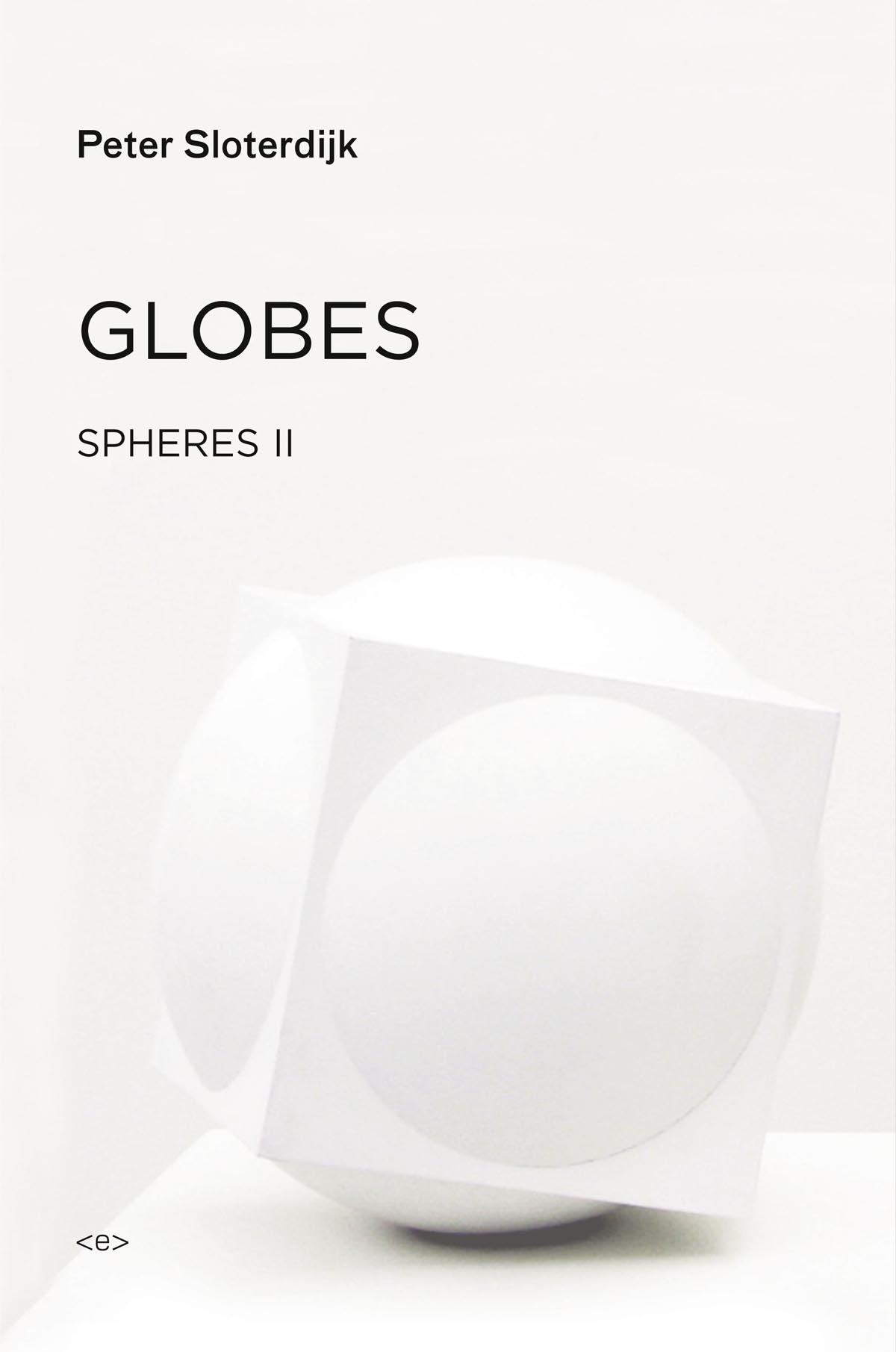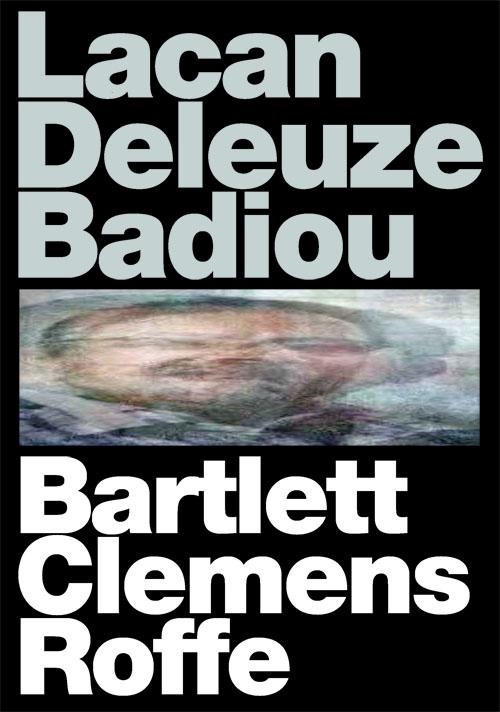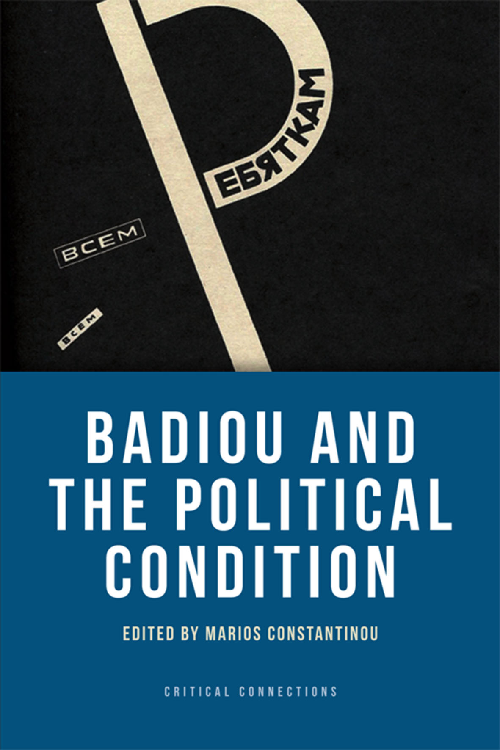#61 The Philosophy of War and Exile
By Nolen Gertz
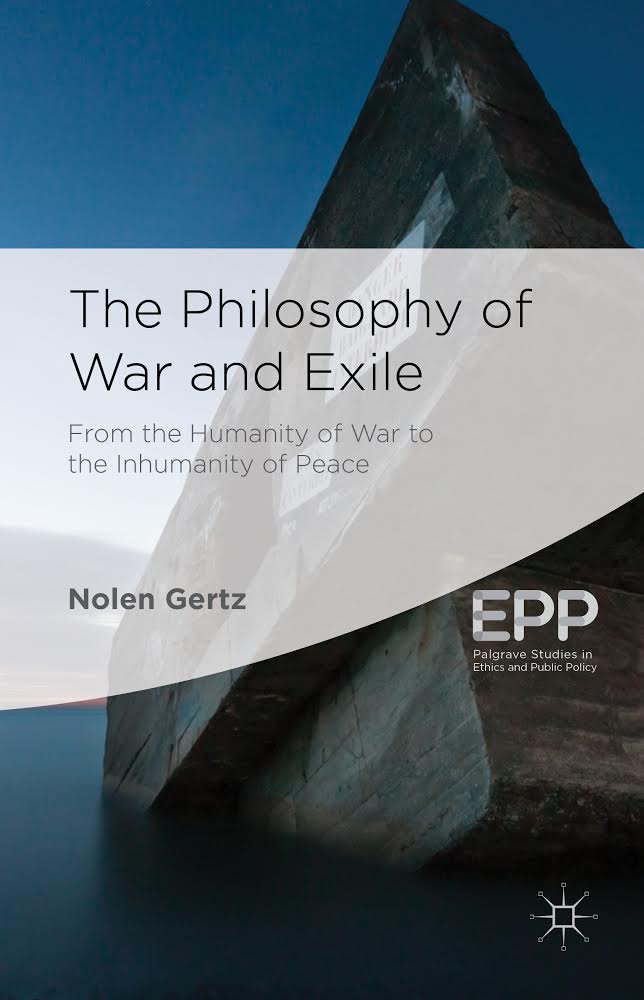
“Arguing that the suffering of combatants is better understood through philosophy than psychology, as not trauma, but exile, this book investigates the experiences of torturers, drone operators, cyberwarriors, and veterans to reveal not only the exile at the core of becoming a combatant, but the evasion from exile at the core of being a noncombatant. From exploring the phenomenological philosophy of J. Glenn Gray to investigating the existential meaning of Rambo, this book focuses not on our current question of how to return veterans to our everyday way of life, but rather on the question of what it means for our everyday way of life that they call alienating what we call home.”
Buy it here.
#62 Globes: Spheres Volume 2
By Peter Sloterdijk
“In Globes—the second, and longest, volume in Peter Sloterdijk’s celebrated magnum opus Spheres trilogy—the author attempts nothing less than to uncover the philosophical foundations of the political history—the history of humanity—of the last two thousand years. The first, well-received volume of the author’s Spheres trilogy, Bubbles, dealt with microspheres: the fact that individuals, from the fetal stage to childhood, are never alone, because they always incorporate the Other into themselves and align themselves with it. With Globes, Sloterdijk opens up a history of the political world using the morphological models of the orb and the globe, and argues that all previous statements about globalization have suffered from shortsightedness. For him, globalization begins with the ancient Greeks, who represented the whole world through the shape of the orb. With the discovery of America and the first circumnavigations of the earth, the orb was replaced by the globe. This second globalization is currently giving way to the third, which we are living through today, as the general virtuality of all conditions leads to a growing spatial crisis.”
Buy it here.
#63 Absolute Recoil
By Slavoj Zizek
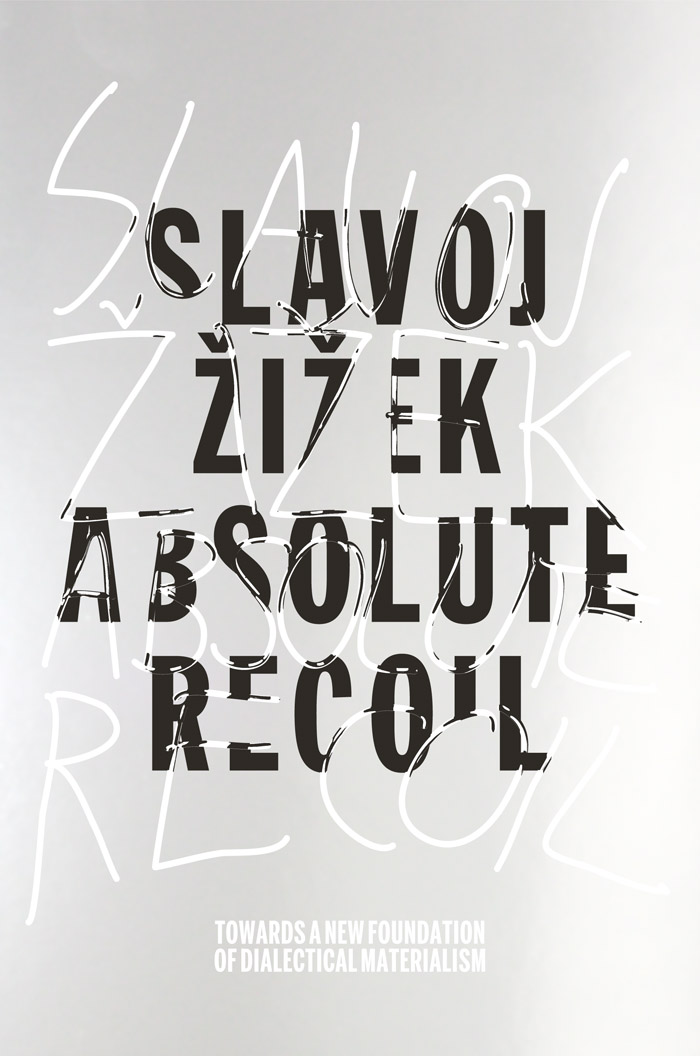
“Philosophical materialism in all its forms – from scientific naturalism to Deleuzian New Materialism – has failed to meet the key theoretical and political challenges of the modern world. This is the burden of philosopher Slavoj Žižek’s argument in this pathbreaking and eclectic new work. Recent history has seen developments such as quantum physics and Freudian psychoanalysis, not to speak of the failure of twentieth-century communism, shake our understanding of existence.
In the process, the dominant tradition in Western philosophy lost its moorings. To bring materialism up to date, Žižek – himself a committed materialist and communist – proposes a radical revision of our intellectual heritage. He argues that dialectical materialism is the only true philosophical inheritor of what Hegel designated the “speculative” approach in thought.”
Buy it here.
#64 Radio Benjamin
By Walter Benjamin
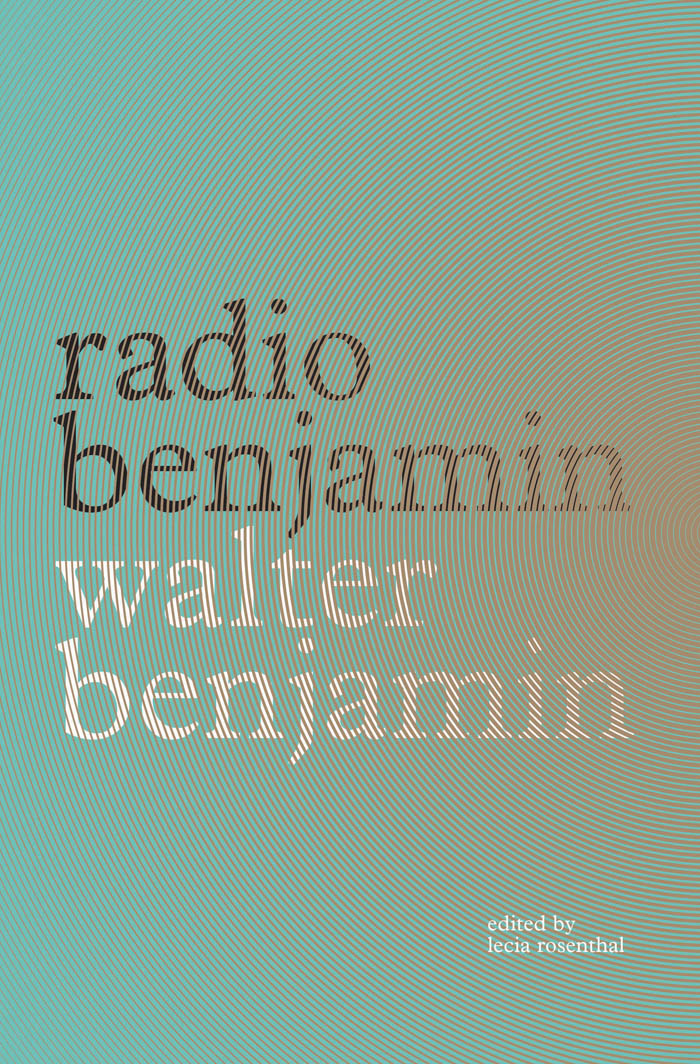
“Walter Benjamin was fascinated by the impact of new technology on culture, an interest that extended beyond his renowned critical essays. From 1927 to ’33, he wrote and presented something in the region of eighty broadcasts using the new medium of radio. Radio Benjamin gathers the surviving transcripts, which appear here for the first time in English. This eclectic collection demonstrates the range of Benjamin’s thinking and his enthusiasm for popular sensibilities. His celebrated “Enlightenment for Children” youth programs, his plays, readings, book reviews, and fiction reveal Benjamin in a creative, rather than critical, mode. They flesh out ideas elucidated in his essays, some of which are also represented here, where they cover topics as varied as getting a raise and the history of natural disasters, subjects chosen for broad appeal and examined with passion and acuity.”
Buy it here, or read the Critical-Theory review.
#65 The World of Freedom
By Robert Nichols
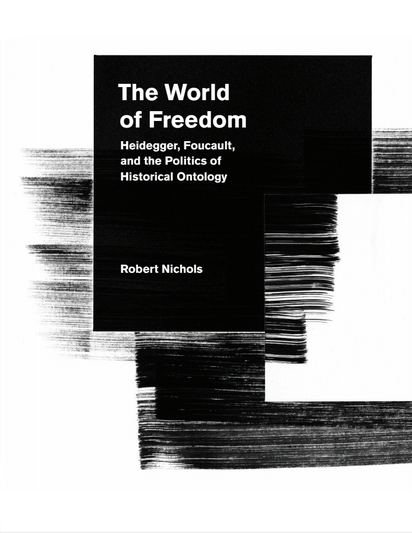
“Martin Heidegger and Michel Foucault are two of the most important and influential thinkers of the twentieth century. Each has spawned volumes of secondary literature and sparked fierce, polarizing debates, particularly about the relationship between philosophy and politics. And yet, to date there exists almost no work that presents a systematic and comprehensive engagement of the two in relation to one another. The World of Freedom addresses this lacuna.
Neither apology nor polemic, the book demonstrates that it is not merely interesting but necessary to read Heidegger and Foucault alongside one another if we are to properly understand the shape of twentieth-century Continental thought. Through close, scholarly engagement with primary texts, Robert Nichols develops original and demanding insights into the relationship between fundamental and historical ontology, modes of objectification and subjectification, and an ethopoetic conception of freedom. In the process, his book also reveals the role that Heidegger’s reception in France played in Foucault’s intellectual development—the first major work to do so while taking full advantage of the recent publication of Foucault’s last Collège de France lectures of the 1980s, which mark a return to classical Greek and Roman philosophy, and thus to familiar Heideggerian loci of concern.”
Buy it here.
#66 The Spectre of Capital
By Joseph Vogl
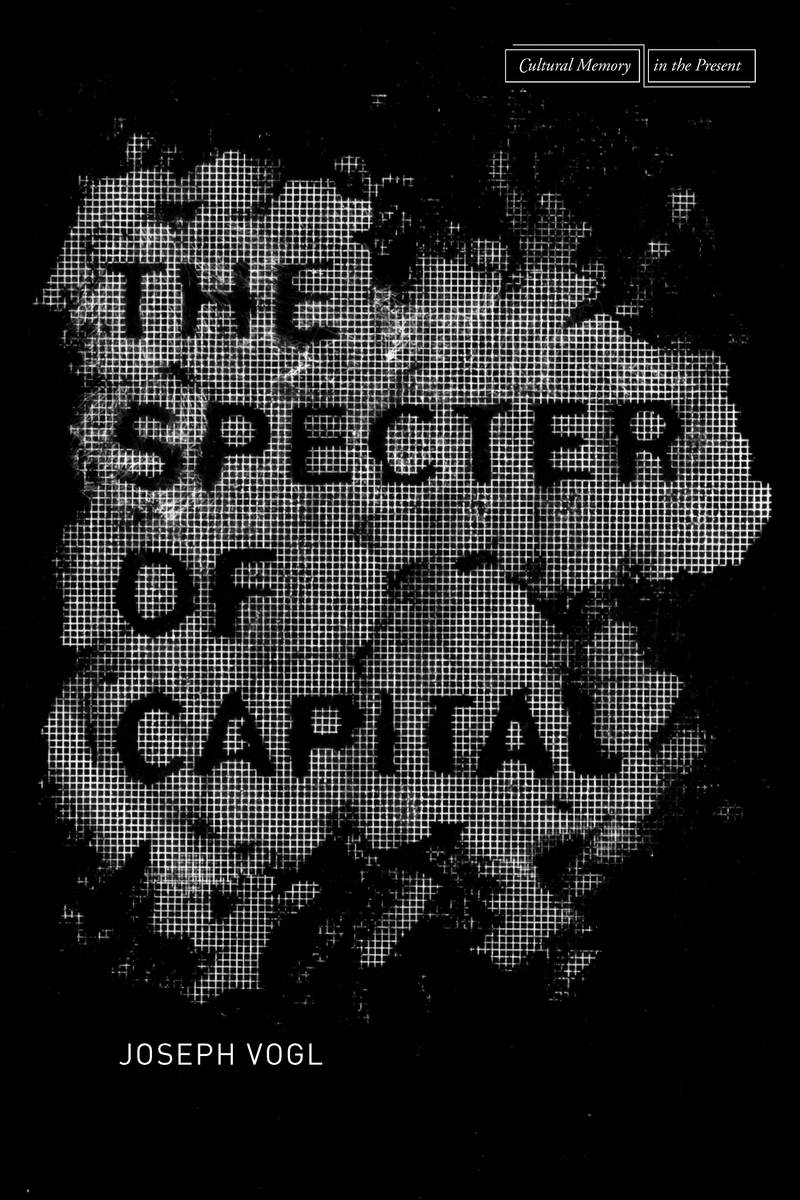
“In his brilliant interdisciplinary analysis of the global financial crisis, Joseph Vogl aims to demystify finance capitalism—with its bewildering array of new instruments—by tracing the historical stages through which the financial market achieved its current autonomy. Classical and neoclassical economic theorists have played a decisive role here. Ignoring early warnings about the instability of speculative finance markets, they have persisted in their belief in the inherent equilibrium of the market, describing even major crises as mere aberrations or adjustments and rationalizing dubious financial practices that escalate risk while seeking to manage it.”
Buy it here.
#67 The Intervals of Cinema
By Jacques Ranciere
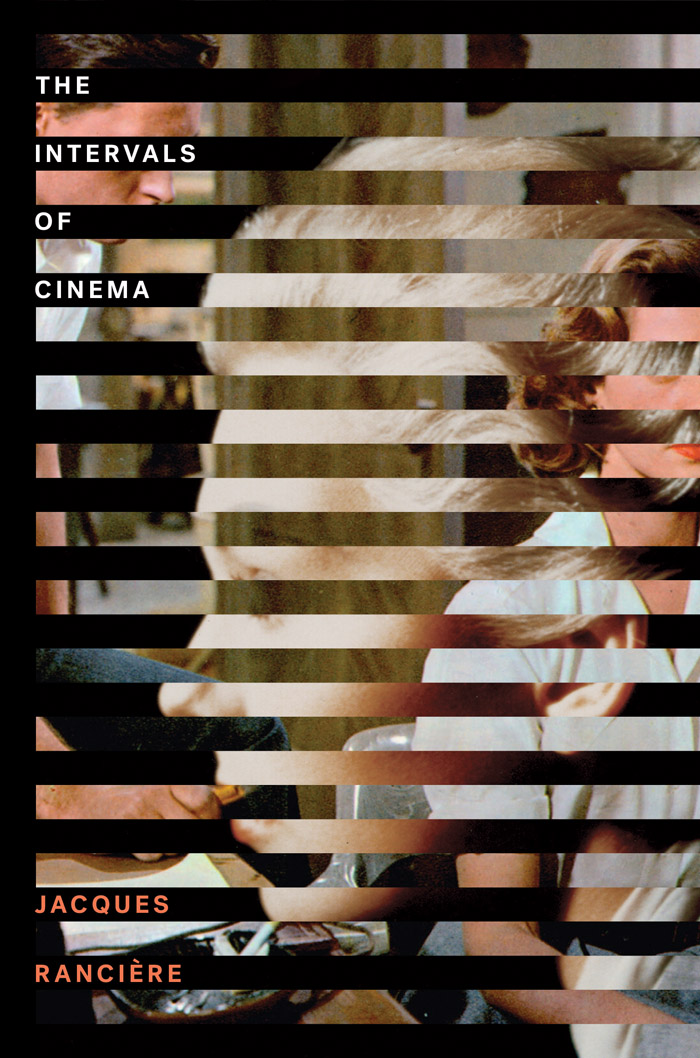
“Cinema, like language, can be said to exist as a system of differences. In his latest book, acclaimed philosopher Jacques Rancière looks at cinematic art in comparison to its corollary forms in literature and theatre. From literature, he argues, cinema takes its narrative conventions, while at the same time effacing literature’s images and philosophy; and film rejects theatre, while also fulfilling theatre’s dream.
Built on these contradictions, the cinema is the real, material space in which one is moved by the spectacle of shadows. Thus, for Rancière, film is the perpetually disappointed dream of a language of images.”
Buy it here.
#68 The End of the World and Other Teachable Moments
By Michael Naas
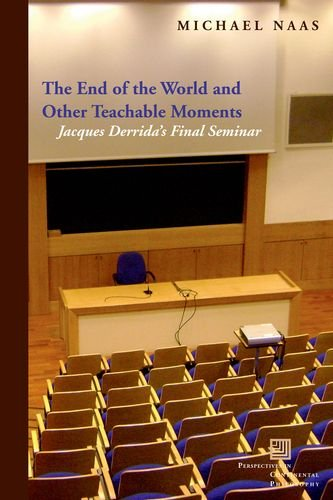
“The End of the World and Other Teachable Moments follows the remarkable itinerary of Jacques Derrida’s final seminar, “The Beast and the Sovereign” (2001–3), as the explicit themes of the seminar—namely, sovereignty and the question of the animal—come to be supplemented and interrupted by questions of death, mourning, survival, the archive, and, especially, the end of the world.
The book begins with Derrida’s analyses, in the first year of the seminar, of the question of the animal in the context of his other published works on the same subject. It then follows Derrida through the second year of the seminar, presented in Paris from December 2002 to March 2003, as a very different tone begins to make itself heard, one that wavers between melancholy and an extraordinary lucidity with regard to the end. Focusing the entire year on just two works, Daniel Defoe’s Robinson Crusoe and Martin Heidegger’s seminar of 1929–30, “The Fundamental Concepts of Metaphysics,” the seminar comes to be dominated by questions of the end of the world and of an originary violence that at once gives rise to and effaces all thing”
Buy it here.
#69 Giorgi Agamben: Beyond the Threshold of Deconstruction
By Kevin Attell
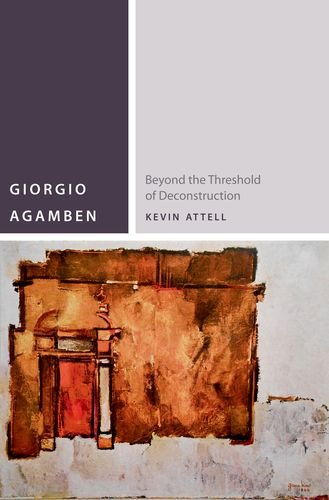
“Agamben’s thought has been viewed as descending primarily from the work of Heidegger, Benjamin, and, more recently, Foucault. This book complicates and expands that constellation by showing how throughout his career Agamben has consistently and closely engaged (critically, sympathetically, polemically, and often implicitly) the work of Derrida as his chief contemporary interlocutor.
The book begins by examining the development of Agamben’s key concepts—infancy, Voice, potentiality—from the 1960s to approximately 1990 and shows how these concepts consistently draw on and respond to specific texts and concepts of Derrida. The second part examines the political turn in Agamben’s and Derrida’s thinking from about 1990 onward, beginning with their investigations of sovereignty and violence and moving through their parallel treatments of juridical power, the relation between humans and animals, and finally messianism and the politics to come.”
Buy it here.
#70 Nietzsche and the Becoming of Life
By Vanessa Lemm
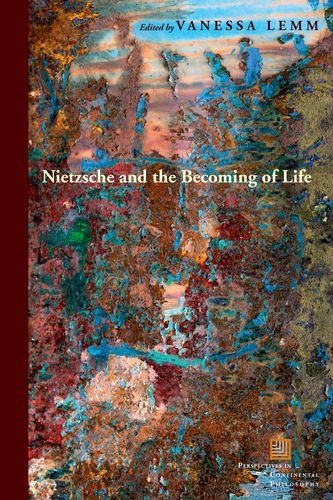
“Throughout his writing career Nietzsche advocated the affirmation of earthly life as a way to counteract nihilism and asceticism. This volume takes stock of the complexities and wide-ranging perspectives that Nietzsche brings to bear on the problem of life’s becoming on Earth by engaging various interpretative paradigms reaching from existentialist to Darwinist readings of Nietzsche.
In an age in which the biological sciences claim to have unlocked the deepest secrets and codes of life, the essays in this volume propose a more skeptical view. Life is both what is closest and what is furthest from us, because life experiments through us as much as we experiment with it, because life keeps our thinking and our habits always moving, in a state of recurring nomadism. Nietzsche’s philosophy is perhaps the clearest expression of the antinomy contained in the idea of “studying” life and in the Socratic ideal of an “examined” life and remains a deep source of wisdom about living.”
Buy it here.
#71 Hegel: Key Concepts
By Michael Baur
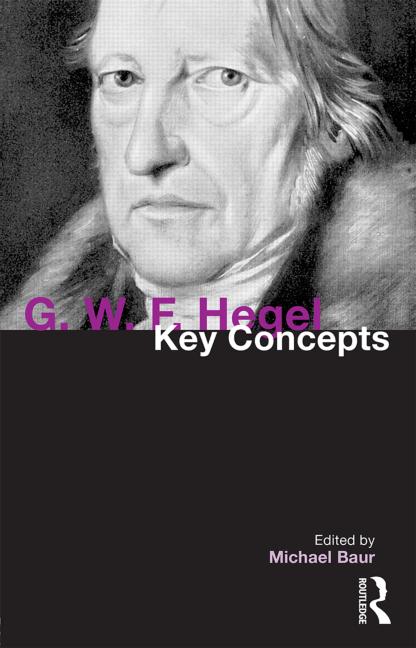
“The thought of G. W. F. Hegel (1770 -1831) has had a deep and lasting influence on a wide range of philosophical, political, religious, aesthetic, cultural and scientific movements. But, despite the far-reaching importance of Hegel’s thought, there is often a great deal of confusion about what he actually said or believed.
G. W. F. Hegel: Key Concepts provides an accessible introduction to both Hegel’s thought and Hegel-inspired philosophy in general, demonstrating how his concepts were understood, adopted and critically transformed by later thinkers. The first section of the book covers the principal philosophical themes in Hegel’s system: epistemology, metaphysics, philosophy of mind, ethical theory, political philosophy, philosophy of nature, philosophy of art, philosophy of religion, philosophy of history and theory of the history of philosophy. The second section covers the main post-Hegelian movements in philosophy: Marxism, existentialism, pragmatism, analytic philosophy, hermeneutics and French poststructuralism.”
Buy it here.
#72 Night of the World
By Frank Smecker
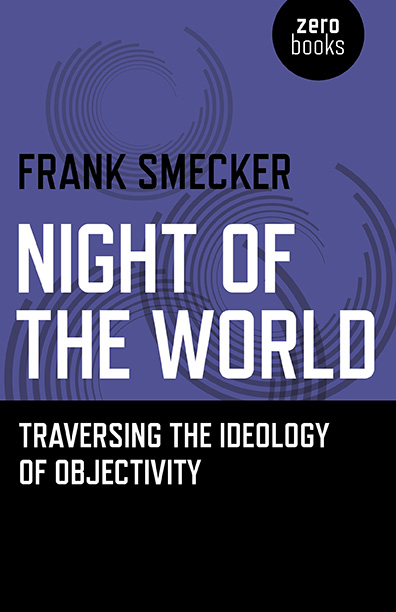
“By situating objectivity at the level of ideology, while placing it within a dynamic, experimental and, at times, unorthodox interplay with Hegelian and Lacanian philosophy, The Night of the World offers a unique and radical re-thinking of objectivity. Encompassing a constellational array of wide-ranging subjects, from popular culture, politics, history, science, and philosophy, while deploying an engaging prose that is both incisive and seamlessly tangential, Smecker is both an ally with, and emerging voice in, the field of Zizekian dialectics. Incorporating Zizek’s philosophy, Smecker speculates over both objectivity and ideology, evoking methods of thought not so prevalent since German Idealism was all the rage. In the spirit of Kierkegaard, The Night of the World is the result of an imaginative hypothesis. And that is only the half of it. Written in a style that will undoubtedly leave the reader itching to read it again once finished, The Night of the World is an ongoing engagement with an abundance of additional postulations, whose sole purpose is to produce more products of thought.”
Buy it here.
#73 Laruelle: Against the Digital
By Alexander R. Galloway
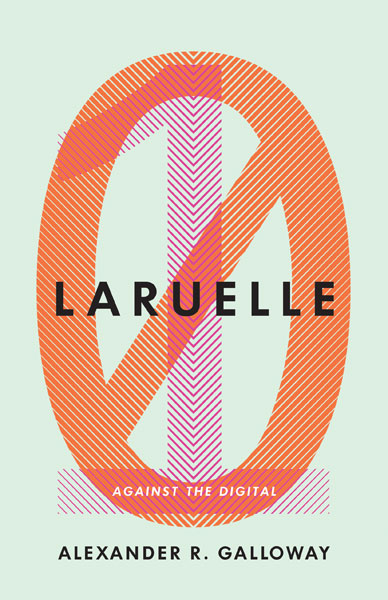
“Laruelle is one of the first books in English to undertake in an extended critical survey the work of the idiosyncratic French thinker François Laruelle, the promulgator of non-standard philosophy. Laruelle, who was born in 1937, has recently gained widespread recognition, and Alexander R. Galloway suggests that readers may benefit from colliding Laruelle’s concept of the One with its binary counterpart, the Zero, to explore more fully the relationship between philosophy and the digital. ”
Buy it here.
#74 The Feminine Symptom
By Emanuala Bianchi
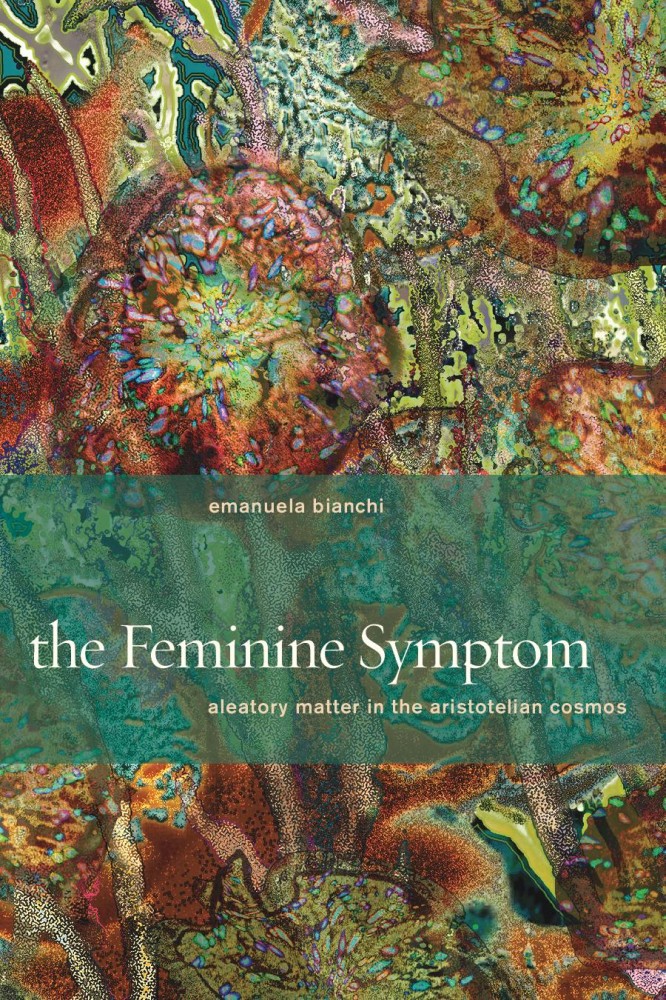
“The Feminine Symptom takes as its starting point the problem of female offspring for Aristotle: If form is transmitted by the male and the female provides only matter, how is a female child produced? Aristotle answers that there must be some fault or misstep in the process.
This inexplicable but necessary coincidence—sumptoma in Greek—defines the feminine symptom. Departing from the standard associations of male-activity-form and female-passivity-matter, Bianchi traces the operation of chance and spontaneity throughout Aristotle’s biology, physics, cosmology, and metaphysics and argues that it is not passive but aleatory matter— unpredictable, ungovernable, and acting against nature and teleology—that he continually allies with the feminine.”
Buy it here.
#75 Tragedy of Fatherhood
By Silke-Maria Weineck
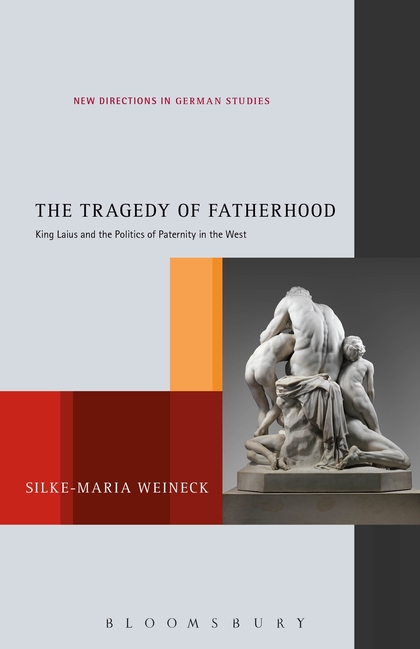
“Theories of power have always been intertwined with theories of fatherhood: paternity is the oldest and most persistent metaphor of benign, legitimate rule. The paternal trope gains its strength from its integration of law, body, and affect-in the affirmative model of fatherhood, the biological father, the legal father, and the father who protects and nurtures his children are one and the same, and in a complex system of mutual interdependence, the father of the family is symbolically linked to the paternal gods of monotheism and the paternal ruler of the monarchic state.
#76 Ontology in Heidegger and Deleuze
By Gavin Rae
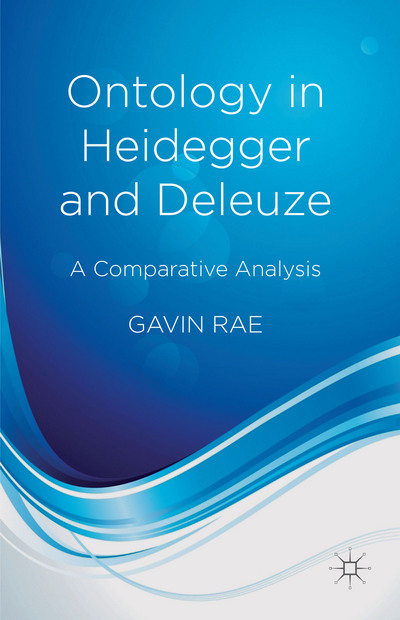
“This groundbreaking book engages with the relationship between ontology, metaphysics, and epistemology in Heidegger and Deleuze. Showing that the latter are rooted in their respective ontologies not only provides a clear, detailed, and holistic outline of all three, but also reveals that Heidegger and Deleuze are highly critical of thinking that associates being with identity. While they both seek to overcome this association by affirming being as becoming, they differ in terms of what this becoming entails with Deleuze’s onto-genetic account of being’s rhizomic-becoming going beyond Heidegger’s temporal account. However, while Deleuze attempts to think as and from difference, the relationship between identity and difference is explored to offer a tri-partite account of identity that shows that, despite his claims to the contrary, Deleuze’s ontological categories continue to depend on a form of the identity he aims to overcome.”
Buy it here.
#77 Ricoeur and the Post-Structuralists
By Johann Mitchell
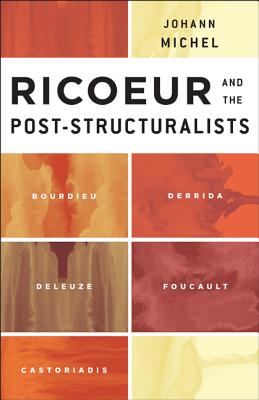
“In this important and original book, Johann Michel paves the way for a greater understanding of Paul Ricoeur’s philosophy by exploring it in relation to some major figures of contemporary French thought—Bourdieu, Derrida, Deleuze, Foucault and Castoriadis.”
Buy it here.
#78 Phenomena, Critique, Logos
By Michael Marder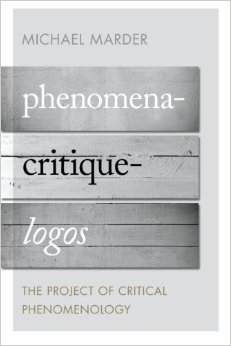
“Phenomena-Critique-Logos challenges this assumption and endeavors to work out a systematic concept of critique, using the resources of phenomenology itself. In this innovative work, Michael Marder argues that critique is situated at the very heart of phenomenology, traversing the Husserlian oeuvre and regulating the relation between phenomena and logos, conceived in its multiple senses as reason, logic, a mode of thinking, study and word. Having outlined the features of phenomenology as a kind of critique, Marder goes on to demonstrate how it is applicable to ontology, ethics and politics, through sustained readings of Heidegger, Levinas, Arendt and Derrida, as well as through an original elaboration of phenomenological critique pertinent to each of these fields.”
Buy it here.
#79 Lacan Deleuze Badiou
By A. J. Bartlett, Justin Clemens and Jon Roffe
“The theoretical writings of Jacques Lacan, Gilles Deleuze and Alain Badiou stand at the heart of contemporary European thought. While the combined corpus of these three figures contains a significant number of references to each other’s work, such references are often simply critical, obscure – or both. Lacan Deleuze Badiou guides us through these crucial, under-remarked interrelations, identifying the conceptual passages, connections and disjunctions that underlie the often superficial statements of critique, indifference or agreement.
Working through the rubrics of the contemporary, time, the event and truth, Bartlett, Clemens and Roffe present a new, lucid account of where these three thinkers stand in relation to one another and why their nexus remains unsurpassed as a point of reference for contemporary thought itself.”
Buy it here.
#80 Badiou and the Political Condition
Edited by Marios Constantinou
The 11 essays in this volume, including a new piece by Badiou himself, reflect the formative traditions that shape the background of his political thought. They intervene critically and evaluate the present state of Badiou’s work, while also breaking new ground and creating new thresholds of political thought.
The contributors are a range of established scholars and rising theorists of the Badiou-effect. Each engages with the critical question of ‘how to transmit the exception’ politically. at the intersection of contemporary anti-imperial polemics and debates that strike at the heart of the post-modern condition (Lyotard), deconstruction (Derrida), psychoanalysis (Lacan – Zizek), biopolitics (Hardt and Negri) and pedagogy (Rancière).”
Buy it here.

